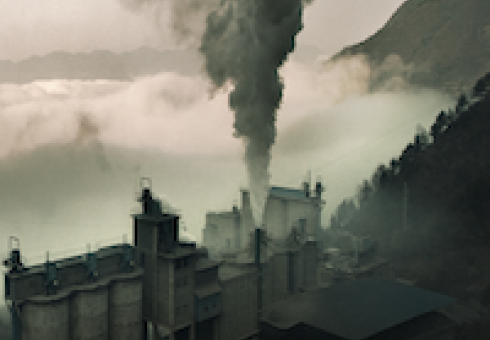Joint Program In the News
By Mike Orcutt | MIT Technology Review
China may put a stop to growing carbon dioxide emissions earlier than expected, but how quickly they start coming down is also important.
In an agreement announced last week, China and the United States, which together account for...
By Peter Dizikes, MIT News Office
With cap-and-trade legislation on greenhouse-gas emissions having stalled in Congress in 2010, the Obama administration has taken a different approach to climate policy: It has used the mandate of the Environmental Protection Agency (EPA) to propose a...
In this column for the Washington Post Wonk Blog, Michael Levi, senior fellow for energy and the environment at the Council on Foriegn Relations, describes the significance of U.S.-China climate agreement, and research that may have influenced the agreement.
Read the article...
by Zach Wener-Fligner, MIT News correspondent
All around the planet, high-frequency climate observatories are collecting atmospheric data around the clock as part of the Advanced Global Atmospheric Gases Experiment (AGAGE), a 35-year-old project to study emissions and climate change....
MIT News Office
On Sept. 19, Maria T. Zuber, MIT’s vice president for research, announced the membership of a community committee to plan and implement the MIT Climate Change Conversation. As Zuber noted, “The Committee should seek broad input from the Institute community on how the...
Audrey Resutek and Erwan Monier
MIT Joint Program on the Science and Policy of Global Change
World Meteorological Organization Bulletin, October 17, 2014
The US...
Helen Hill (EAPS)
MIT News
October 10, 2014
Peter Hale Molnar, professor of geological sciences at the University of Colorado at Boulder and a fellow at the Cooperative Institute for Research in Environmental Sciences in Boulder, Colo., presents the...
Bobby Magill
Climate Central
Water stress — the general scarcity of freshwater for people who need it — is considered by many scientists as one of the biggest challenges facing humanity and struggling ecosystems in a world increasingly affected by climate change.
Studies...
by BusinessGreen staff
MIT has added its voice to the cacophony of scientific institutions presenting warnings on the true scale of projected climate impacts, with the publication of a new report arguing we are currently on track to far exceed the 2C temperature goal set by the...
An article published this week on the University of Nottingham Climate Policy Institute Blog: "China: Local incentives drive action on global climate change".
You can find the full article by following the link below:
...











